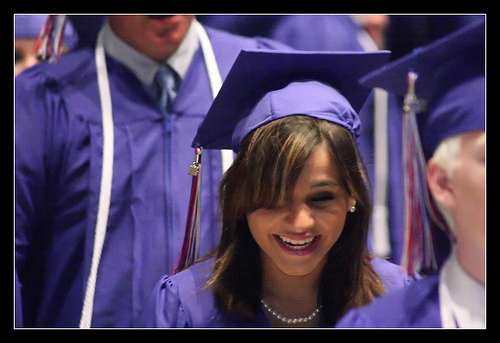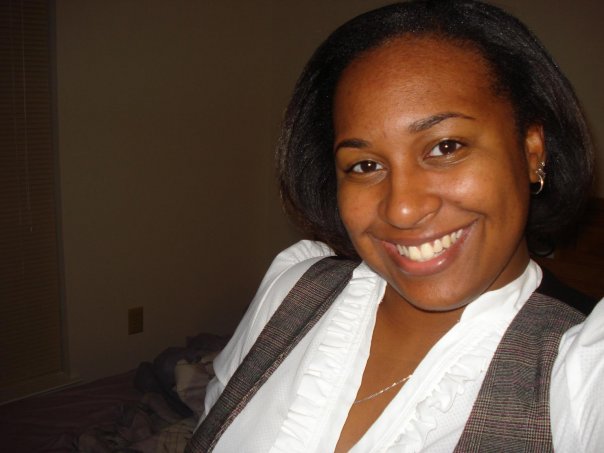For students these days, GPA is everything — so you’d better get it right! Today I interviewed Colleen Angaiak who has been an academic advisor for eight years. She helps kids calculate their GPA, set goals for the future, and much more. I found her math journey very interesting.
Can you explain what you do for a living?
I work with undergraduate students, mostly freshmen and sophomores, to help them navigate the world of higher education. My primary task is to help students choose and register for classes each semester, but because our office focuses on Alaska Native and rural Alaskan students, we provide what we call comprehensive advising. This means that we help students with financial aid, including completing the FAFSA and applying for scholarships; deciding on housing and dining options; assisting with career development, including resume writing, applying for jobs, and long-term planning; and social and personal support as well.
When do you use basic math in your job?
The primary area in which we use math is financial aid. Federal and institutional requirements for financial aid eligibility include the GPA (grade point average) and a completion rate. We help students calculate their future (or potential) GPA as well as their completion rates. This primarily involves finding an average (GPA) and a percentage (completion rate). In addition, we use very basic math (addition and subtraction) to help students determine how much they owe the university and how much payment plan payments will be (balance due divided by the number of payments). When we talk with other university departments, we are sometimes asked for simple statistics, such as the persistence rate of our students or number of graduates. Sometimes we receive that information from our department of Institutional Research, but other times we gather the data ourselves.
Do you use any technology (like calculators or computers) to help with this math? Why or why not?
I almost always use a calculator for computing GPA and completion rate as well as determining payments or balance due. This is because I want to be completely accurate when giving information to a student. In addition, I use the calculator on my computer and show the student as I do it so they can see how I reach the figure I share with them. Some GPA calculations are complicated, such as when a student is repeating a class and the new grade will replace the old one in the GPA calculation. For this and a few other instances, our university provides an online tool to determine GPA, and I do use this tool as well.
How do you think math helps you do your job better?
Our office takes pride in the fact that we make every effort to answer as many of a student’s questions as possible without sending them to multiple departments. Because I have the tools to calculate GPA and completion rate, I can help a student right in my office rather than sending them off to the financial aid office. And because I understand how these numbers are calculated, I can do a better job of explaining to students what they need to do next and how long it will take them to meet the standards set by the university or their own goals.
How comfortable with math do you feel? Does this math feel different to you?
I’m not entirely comfortable with math, but averages and percentages are calculations I’ve worked with before. My previous job included teaching GED preparation to adult students, including math, and that experience increased both my math skills and my math confidence. I am very thankful, though, to have calculators and online tools to assist me, and I do sometimes check will colleagues to determine the accuracy of the math I’ve done. I never help students with math homework or taxes, even if they beg!
What kind of math did you take in high school? Did you like it/feel like you were good at it?
I went to a VERY small high school that offered very little math. I was part of a group of 3-5 students who were on the college prep math track, and we took Algebra I, Geometry, and Algebra II, with Geometry and Algebra II being nearly independent study (the teacher was in another room teaching a larger group and checked in on us 2-3 times per class). I enjoyed Algebra and really disliked Geometry.
Did you have to learn new skills in order to do the math you use in your job? Or was it something that you could pick up using the skills you learned in school?
Averages and percentages are pretty commonly used in life. Like I said, my previous experience teaching GED math helped a lot, and I didn’t need a lot of review to pick up what I need for my current position. There is a learning curve with GPA calculation, especially when dealing with special cases and predictions based on multiple possible outcomes, but I do think high school Algebra would probably be enough for anyone attempting to do the math I am required to do.
Anything else you want to mention?
When we talk to high school students who are planning to attend college, we always encourage them to take as much math as they can while in high school, and to not take long breaks between math classes. The more you use math, the less you lose it!
Interested in learning more about Colleen’s work? Ask your questions in the comments section.
Photo Credit: BdwayDiva1 via Compfight cc








